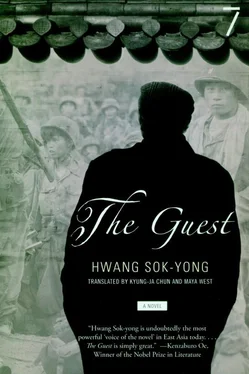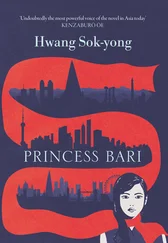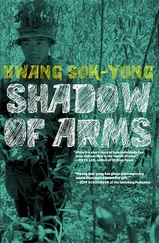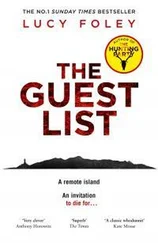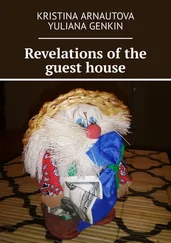“How old were you then?”
“I’m sorry? When?”
“When do you think? During the war.”
“Fourteen, I think. I’d just started middle school.”
“Ah. So you saw it all.”
Yosŏp had a pretty good idea of what his uncle was trying to say.
“This and that. Just pieces, really. but I remember.”
“Those people, you know, on both sides — I knew them very well.”
Yosŏp decided to go ahead and ask his uncle the question that had been on his mind for so long.
“Uncle, why didn’t you become a minister? Grandfather was a minister and, as I understand it, he always hoped you would go on to join a seminary.”
His uncle smiled.
“I went to middle school in Haeju and, well, something happened while I was there. It just so happened that my teacher and I were living in the same boardinghouse, and one night he was taken away by the Japanese police. He spent a couple of years in prison before he was released, and when he finally did get out he was sick and ailing from God only knows what. He passed away. There was this one thing he would always tell us in class — regardless of one’s cause, one should always treat those close to him as well as humanly possible. He told us we should always be good to our neighbors and the family members we see every day. He said that we should always work for the food we ate, that the only alternative to working your share was laying traps to take the share of others, and that was the worst sin of all. I may not have become a minister, but I have done my best to live my life according to his teachings.”
Yosŏp wasn’t about to be put off that easily.
“What about faith? You were a baptized Christian, weren’t you?”
“I still am. I’m also a Party member. After the war, when I started working on the farm, I joined the Party.”
“Is that even possible?”
“I might not have become a Party member if the massacre that took place that winter had never happened. That’s what made me decide to stay here, as a repentant Christian.”
“They slaughtered us Christians, too.”
“Well, as you people put it, they weren’t believers, were they?”
Finding himself at a loss for words, Yosŏp hung his head. The candle flames flickered violently in the wind that blew in through the open window. Yosŏp made up his mind to tell another person, for the first time, about the ghosts he’d been encountering.
“My dead brother, Yohan. he keeps on showing up. The people he killed, too, have been appearing before me. They speak to me.”
“Me, too.”
“You mean you see these phantoms, too?”
“At first they simply showed themselves, but then, at twilight, as I walked the cow home from the fields, I would see lines of the dead walking along the levee across the way. Sometimes when the weather was bad, I would see spirit fires over Some. Now, though, when they appear, they speak to me. I haven’t seen your brother yet.”
“What do you do when they come?”
“I just watch them. I just sit there and gaze at them.”
“You don’t pray?”
“You aren’t supposed to pray at times like those. You look at them when they appear, and you hear them out when they speak to you. Maybe the world is about to change — they’ve been showing up quite often lately. Do you have any idea why that might be?”
“Is it because we have guilty consciences?”
Closing his eyes, Uncle Some bowed his head. For a long while he stayed that way, simply murmuring to himself. Instead of pressing him for an answer, Yosŏp waited. At length, his uncle lifted his head.
“I suppose the time is ripe for them now, for the people who were there. They’re ready now, I think. So. they appear before us as part of their redemption.”
“But you and I, we weren’t to blame, were we?”
Suddenly slamming his thick palm down on the table, Uncle Some shouted, “Show me one soul who wasn’t to blame!”
Looking down at the candle stumps, neither man had anything to say. After a long silence Uncle Some got to his feet, grunting with the effort.
“We have a bed ready for you in the room over there. Go on and get some sleep.”
“Yes, Uncle. What about you?”
“I’ll take the other room.”
Crossing the anteroom, his uncle made his way towards the main bedroom. Yosŏp turned towards his retreating back.
“Was that praying, what you did a little while ago?”
His uncle turned around and smiled, just as he had when they were first reunited.
“I pray everyday.”
“What do you say when you pray?”
“I pray for us all, for our salvation.”
Disappearing into his room, Uncle Some closed the door behind him.
My day-to-day life wasn’t changed much by the liberation. I worked hard to feed my family with my two cows and five thousand p’yŏng of rice paddies. I continued going to church every Sunday, just as I had before. Even with the onset of land reform, my life stayed pretty much the same — I was an independent farmer, so I kept my land and continued to work it. The taxes were hard at first, but later on that stabilized as the system was put into order, and everything became pretty much fair and square as far as I was concerned.
I kept thinking that the church and the Party were both being driven by youths, young boys who were just brimming over with spirit and passion. I still remember the fight on election day. Doesn’t it say in the Bible that that which belongs to Caesar will go to Caesar? They could have voted as they returned home from the Sunday service, or the state could have given them the chance to vote without compromising their religious freedom by extending the election to the following morning. but you know, both the enforcement and the refusal, they were nothing but excuses. Anyway, the fact that the poor were being given land to live on so they wouldn’t have to go hungry — that was a wonderful thing no matter what, especially when you think of the deeds of Jesus Christ. Following that line of reasoning, it was only natural that land belonging to the churches and temples ought to be distributed to the tenants, too.
Back then, I think, both sides were just very young. They needed to grow up enough to realize that things get quite complicated in the business of living, that a lot of things require mutual understanding and compromise. I mean, when you get right down to it, all business for us men on earth is based on material things — so we’ve just got to work hard and share the fruits of our labors with one another. Only when that is done righteously can we render our faith honorably to God. Within a generation of adopting a school of thought in the name of New Learning, be it Christianity or socialism, we all became such ardent followers that we forgot the way of life we’d led for so long.
At the time of liberation I was thirty-five, which was none too young, especially back then. It’s true that the young men, younger than me and my peers, the ones who attended church for the five years leading up to the war, were a bunch of troublemakers. A great many of them crossed the thirty-eighth parallel down into the South, and most of the ones who stayed behind were from families that had some land. Still, they were more like children of the middle class — the really big landowners and rich families only hung around long enough to see which way the wind was blowing; they were gone within the first few months, packing up all their things and disappearing into the night. When the conflict between church and state began heating up, the young ones who’d gone down South started getting involved with politics, joining groups like the Korean Independence Party or the Youth Corps. Then they started frequenting the North again through the Democratic Party, which consisted mainly of Northern churchgoers.
Читать дальше
